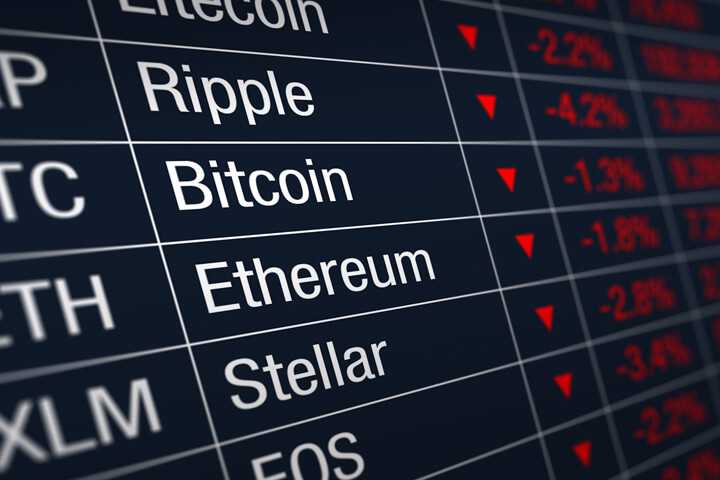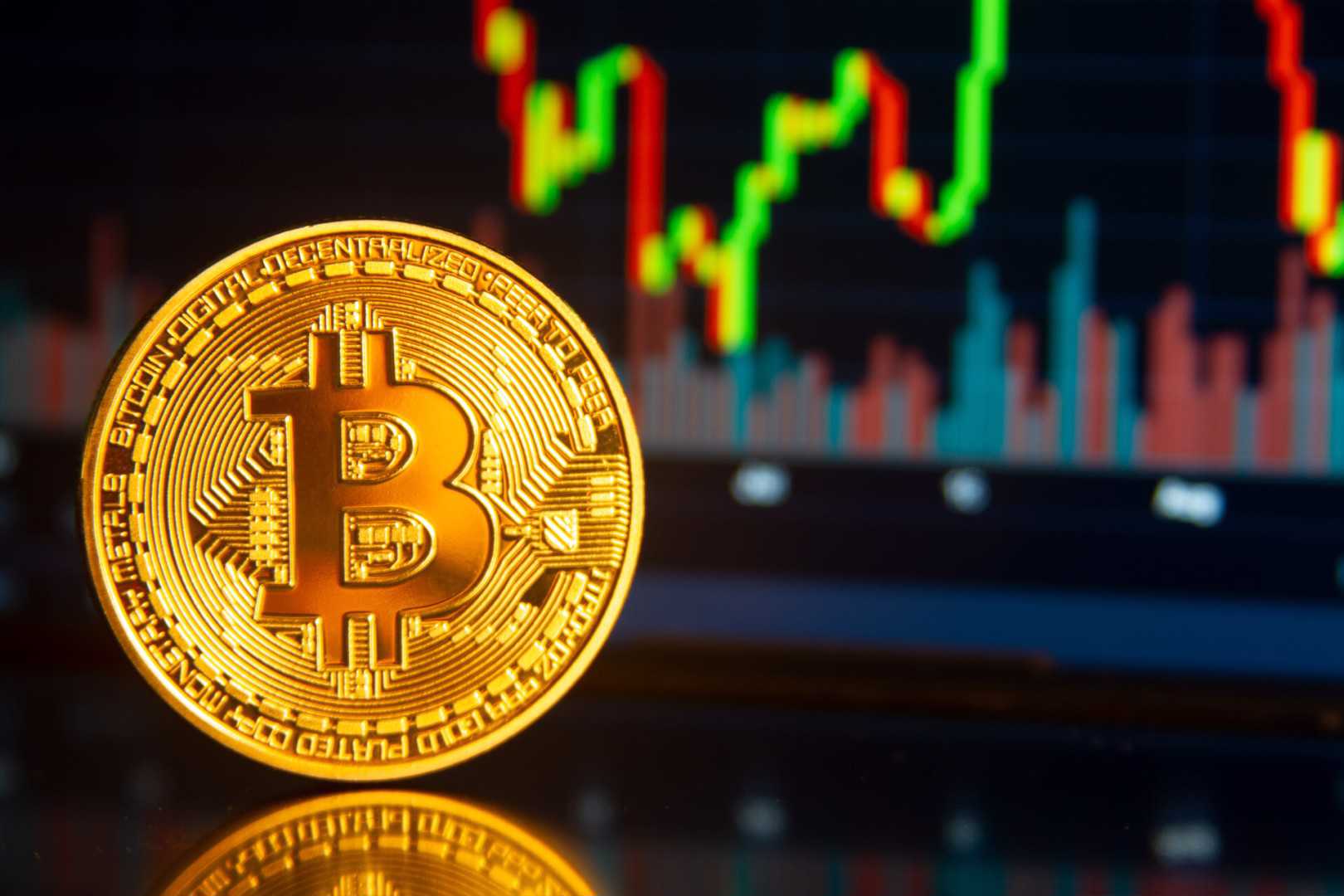Is Cryptocurrency Halal or Haram in Islam: The first cryptocurrency in the world, Bitcoin, has swept the globe since its launch in 2009. As the largest financial institutions in the world continue to integrate digital currencies into their operational infrastructure, billions of payments are being made in these currencies. Various businesses, from small to large, are now taking cryptocurrency in exchange for their goods and/or services. Although it took a long time for the general public to accept Bitcoin, many people are still hesitant to invest in BTC and other cryptocurrencies. An excellent illustration of such a system would be Islamic Finance, where many Muslims are still unsure of the law of cryptocurrencies. This is due to Islamic scholars’ concerns about whether if cryptocurrency is halal or haram in Islam due to their speculative nature.
We must understand the history of money in Islam and what constitutes a permitted or prohibited commercial transaction under Shariah in order to understand whether if cryptocurrencies are Halal or Haram in Islam and comprehend the underlying rationale for the acceptance of digital currencies in the Islamic world (Islamic Law).

What Is Islam’s View on Money?
Islamic values are established on Shariah (Islamic law), and as a result, the way that Muslims view money differs significantly from how Westerners view it. Money (or wealth) is regarded in Islam as being property that men own on behalf of Allah. According to Shariah, it should be invested and used with caution. Islam discourages egoism in contrast to capitalist beliefs. In Islam, money serves a “social function” and should be used to advance socioeconomic justice for the good of the whole community. We must weigh digital currency in the scales of Sharia Law in order to understand whether cryptocurrency is halal or haram in Islam.
One of the most significant characteristics of Islam is its belief in the free market. In Islam, things with intrinsic value are regarded as money. Gold (as Gold Dinar), silver (as Silver Dirham), and food goods like dates, wheat, barley, salt, etc. are a few examples of commodities that can be used as money. Hard assets are also examples of commodities that can be traded.
Islam’s definition of money
Islam allows for the use of anything with intrinsic value as long as its value does not vary or change unexpectedly. Additionally, Islamic Shariah considers any object that may be exchanged for anything else with equivalent value without adding anything to be lawful.
Islam’s Financial History
Before the seventh century CE, numerous currencies were in use. People continued to utilise a variety of currencies for market transactions even after the advent of Islam. However, Dinar and Dirham were the two currencies that gained the most traction and use during the Islamic era.
Dinar
Throughout the early Islamic era, individuals utilised the Byzantine Dinar (gold), which weighed one “mithqal” (a unit of weight corresponding to around 5 grams). The government had little influence over how people used it in their transactions even though it was the accepted form of payment at the time due to a variety of issues including diverse demographics, unusual transactional practices, and other factors.
Dirham
Before and after Islam arrived in the Middle East, the Persian (Sassanid) money, the dirham, was in use. In his capacity as the fourth caliph of Islam, Ali (R.A.) introduced new coinage with the name of the Islamic state. On both sides of dirhams and dinars, the Kufic script was used to print certain Quranic phrases as well as the year and place of the coinage.
The “natural value” of the coinage was defined as the value of the metallic components inside the dinar (gold) and dirham (silver) coins. The weights of the dirham and dinar were used as the basis for trading for many years. As a result, the value of money was equal to the intrinsic worth of the metal used to make the dinar and dirham coins, and the term value of money (i.e. purchasing power) was ignored. As a result, the price of the dinar and dirham was determined by their contents (silver or gold).
The exchange rate of the dinar to the dirham was often affected by the supply and demand for gold and silver. In the early years of Islam, the dinar to dirham ratio was 10 to 1. However, the quantity of silver increased and the price of silver rose with the conquest of Persia, Syria, and Egypt under the rule of Islam’s second caliph, Umar ibn Khattab (R.A). The relative price of gold increased as a result, reaching a maximum value of 13 dirhams for each dinar. As was previously mentioned, the ratio changed over time depending on the availability of gold and silver.
How Can This Teach Us Something?
Islamic currencies have historically been primarily based on tangible items like gold and silver. Islamists used dinars and dirhams to pay for products and/or services. Muslim nations have gradually changed the exchange rate between dinar and dirham, but Islamic Shariah rules, like the ban on paying interest on trades and the severe prohibition of manipulating currency prices in the markets, have remained in place.
Despite using the dirham and dinar for a long time, Muslims had to switch to paper (fiat) money because of:
A) The issue with tally and exchange of silver and gold coins
B) There have been instances where dishonest people have compromised the coins’ inherent value.
As the Islamic world gradually embraced fiat money, the field of Islamic finance flourished.
Islamic Money Types
In general, Islam only takes into account two sorts of money. The first is referred to as “natural money,” and the second is “customary money.”
Natural money is anything that has a monetary value on its own. The valuable metals gold and silver, as well as any other kind, are excellent examples of it.
Contrarily, there are two main categories of customary money.
The first is fiat money, which is something that we are all familiar with. Fiat money is defined as having no intrinsic value, which means it is dependent on an external authority, in this case, the government, to be recognised as legal tender.
Anything connected to a good or a commodity that also has a perceived monetary worth is considered to be the second sort of customary money. Barley, salt, rice, and other items are excellent examples of this type of money.
How Does Islam View a Tradeable Good as Legitimate?
On this topic, various schools of thought have offered their opinions.
“When currencies and money are traded with the objective of investment and profit, it undermines the very purposes of money and Thamaniyyah”, according to the renowned Islamic scholar, muhaddith, and theologian Imam Ibn Taymiyyah.
Major schools of thought generally agree on most of the fundamental concepts surrounding this case. In general, three requirements must be met for a thing to be suitable for trade in Islam:
The thing being traded should have some monetary value or “Thamaniyyah” as it is known in Arabic. In this instance, the monetary value would be determined by
1) Independent value and price, along with acceptance and stability, are
B) A major reference point, or appropriate transaction mechanism, that aids in keeping track of costs and controlling debt.
The object should be of some sort of legal worth, or “taqawwum” as it is known in Arabic. It alludes to anything priceless that is also considered “halal” by the Islamic Shariah.
The third and last requirement is that the thing is marked as property, or “maal” as it is known in Arabic. Islam defines property as something pleasant, made for human well-being, and capable of being stored and recovered for making transactions.
Cryptocurrency: What Is It?
Cryptocurrencies use encryption to stop fraud and double-spending. They are digitalized forms of money. Blockchain technology is the foundation of many cryptocurrencies.
It is a digital payment system that does not depend on banks to verify transactions. Anyone can send and receive payments with this peer-to-peer system from anywhere. Payments made with cryptocurrencies are not made with actual money that is carried and sold in the real world, but rather with digital inputs to an online database that describes specific transactions.
Rise of Bitcoin
Bitcoin’s creator, Satoshi Nakamoto, was the first to argue that a system of electronic payments based on cryptographic verification rather than trust was necessary. Satoshi launched Bitcoin (BTC) in 2009, which grew to become the most popular decentralised digital money in the world.
Every Bitcoin transaction since the currency’s creation has been recorded in a collective ledger, including the first well-known BTC transaction known as “Bitcoin Pizza.” The blockchain system’s evidence, which is fully decentralised and unconnected to the financial institutions that function in the actual world, determines the value of a bitcoin.
There are thousands of digital currencies available on cryptocurrency exchanges right now, like Ethereum, Cardano, and XRP, that are also quite popular globally and have millions of supporters. Currently valued at over $2.48 trillion, the cryptocurrency market is expected to grow exponentially over the next few years.
Why Do Muslims Have a Problem Accepting Bitcoin?
Even if Bitcoin and other cryptocurrencies are becoming more and more popular, the majority of Muslims are quite hesitant to enter the blockchain industry. Islam instructs Muslims to obey Islamic scholars who base their judgements on the two main sources of knowledge, namely the Quran and Hadith. This is one of the main reasons why.
In the Quran, Allah declares:
“So ask of those who know the Scripture, if you know not”
Qur’an, An-Nahl Chapter, Verse 43
Muslims frequently return any disputed issues to the experts, who issue a judgement (called a “fatwa” in Arabic) based on Shariah. Scholars have differing views on Bitcoin and other cryptocurrencies. Some scholars are in the centre and have chosen to take more time to consider the nature of cryptocurrencies before deciding whether they are haram or halal, while others have declared cryptocurrencies to be “Halal,” meaning lawful.
Islamic Scholars’ Views on the Acceptability of Cryptocurrencies
Whether Muslims should invest in Bitcoin or stay away from it is still unregulated. The legislators who formalised Islam’s theological tenets would be accountable for this, but that task has not yet been completed. Despite this, a number of Islamic sages have offered their opinions on how the law relates to Bitcoin.
Scholars who view Bitcoin as Haram (Impermissible)
1. Sheikh Shawki Allam, Egypt’s Grand Mufti
Digital money should not be used, Sheikh Shawki advised. He believed that using Bitcoin increased the possibility of fraud, ignorance, and dishonesty. The Grand Mufti claims that because virtual currency is not governed by a single entity, risks could arise. Furthermore, he asserted that Shariah forbids the usage of Bitcoin since it endangers individuals, groups, and organisations.
2. Shaykh Haitham al-Haddad, a British-born Islamic jurist and television personality
In the Muslim world, Shaykh Haitham is a well-known scholar. Shaykh Haitham wrote a comprehensive Arabic research paper on the topic of cryptocurrency. He claims that because Bitcoin is a virtual currency with no real-world value, it is not permitted (halal) in Islam. Since the 1971 Bretton-Woods agreement to disconnect the dollar from gold, he contends, traditional fiat currencies have also been worthless. Shaykh Haitham contends that despite fiat currencies having no intrinsic value, they are nonetheless reliable because they are backed by a central authority, which cryptocurrencies lack. Shaykh Haitham is open to the idea of investing in cryptocurrencies, despite his belief that they are currently not permitted.
3. Sheikh Assim al-Hakeem, a Saudi Arabian academic and TV personality who promotes Islam
Sheikh Assim claims that due to the obscurity of Bitcoin, trading in it is not permissible in Shariah. According to the Jeddah, Saudi Arabia-born Arab professor, cryptocurrencies are uncontrolled, and we have no idea how or where they are being used. This suggests that it might be used for illegal activities including drug trafficking, money laundering, and racketeering. Assim Al-Hakeem added that there are still numerous questions about cryptocurrencies, including their long-term profitability and security. According to Sheikh Assim, the rapid increase in the market value of cryptocurrency also poses questions.
Educators Who Describe Cryptocurrency as Halal (Permissible)
1. Islamqa.org scholars Maulana Jamal Ahmed & Mufti Faraz Adam
The Hanafi school of law is promoted by Maulana Jamal Ahmed. He claims that Bitcoin and other cryptocurrencies are not a part of the real economy because they have no positive social impact. He claimed that the production of commodities, services, or labour is not promoted by Bitcoin. It can be detrimental for society as a whole to concentrate wealth in digital assets. Despite all the worries, they nevertheless meet the criteria for assets (digital) and do have a value associated with them, according to Mufti Faraz Adam. In terms of Shariah, Bitcoin has two concepts: “Maal,” which denotes something that can be stored, and “Taqawwum,” which denotes something that has legal worth. So investing in cryptocurrency is allowed, although it is undesirable.
2. Shariah scholar Mufti Abdul Qadir Barakatullah
Mufti Abdul Qadir has a strong experience in Islamic finance and economics. He has led numerous Shariah supervisory boards and a number of Islamic financial organizations, among other accomplishments. Mufti Abdul Qadir is sure that using cryptocurrency as a supplementary tool will enable significant advancements to be made in the area of Islamic finance. Due to the well-known principle upheld by Muslim jurists that anything that is widely accepted in society as a means of payment can be recognized as money in Shariah, he argues that cryptocurrencies are halal.
3. Mufti Muhammad Abu Bakar, a Mufti, and a Shariah scholar
Mufti Muhammad Abu Bakar has a great deal of expertise in researching and putting the financial aspects of Shariah into practice. He is currently employed with SilkBank Limited as a scholar and mufti. He contends that a currency becomes legal in a territory if it is recognized as a legal tender or as a means of payment by a nation. He used Germany as an example, where the government has acknowledged Bitcoin, and Muslims are therefore permitted to buy, trade, and sell it there. As a result, it qualifies as an acceptable type of Islamic customary money.
Scholars Who Save Their Opinion for a Later Date
1. Mufti Taqi Usmani, a Forerunner in the Islamic Finance Industry
Although bitcoin is utilized for speculation, according to Mufti Taqi Usmani, it is neither halal nor haram. From a Shariah perspective, Bitcoin is more accurately described as a “disliked” type of trading. Additionally, he stated that while there is now insufficient evidence to consider cryptocurrencies to be halal in Islam, he may have to reconsider his opinion in the future if they are supported by tangible assets. Therefore, in the opinion of Mufti Taqi Usmani, cryptocurrency trading is both permissible (called “Mubah” in Arabic) and disapproved of (called “Makrooh”).
2. Dr. Ziyaad Mahomed, head of the HSBC Shariah Committee
Dr. Ziyaad Mahomed is a Chartered Islamic Finance Professional (CIFP) from INCEIF and holds a Ph.D. in Islamic Finance. He also serves as the head of HSBC Amanah Malaysia Bhd’s Shariah committee. He asserts that although cryptocurrencies are distinct from gold and silver and are unquestionably permissible as forms of payment in Islam, what matters is that people recognize a currency as having value and utilize it in their transactions. Shaykh Ziyaad claims that the currency’s volatility is a problem and that this could make Bitcoin appear to be a dubious kind of money. Shaykh Ziyaad has cautioned everyone to be careful with their assets before investing in cryptocurrencies because of this. Overall, his perspective is halal, but because of his cautious demeanor, he is unable to fully support the idea of cryptocurrency.
How can Bitcoin be Halal?
While academics disagree on whether Bitcoin and other cryptocurrencies are legal, it is possible to resolve most of their worries and come to a consensus on the matter. The following three requirements must be met for it to occur for Bitcoin:
1. It must be supported by a nation’s government, and the coin’s value should be based on how stable that government is and how well the country’s economy is doing. Alternatively, it ought to be backed by a tangible asset, like gold, silver, etc.
2. A central authority needs to keep track of the transactions. Islam places a premium on preventing the spread of illegal activities including drug trafficking, money laundering, and other horrific crimes.
3. It should be eliminated or reduced how speculative cryptocurrencies. This is significant in Islam because it emphasizes how crucial it is for everyone to save money in order to avoid losses. In other words, cryptocurrency market volatility needs to be kept under fair control.
Scholars’ Agreement on Bitcoin and Other Cryptocurrencies’ Haram Uses
All schools of Islamic thought to consider a few typical cryptocurrency use cases to be prohibited, even though the majority of them are a source of debate among experts. The Quran and the Sunnah (Sayings of the Prophet Muhammad, ), which are the two primary sources from which these concerns derive, are to blame.
1. Is Futures trading Haram?
Islam expressly forbids gambling. In the Quran, Allah declares:
‘’O believers! Intoxicants, gambling, idols, and drawing lots for decisions are all evil of Satan’s handiwork. So shun them so you may be successful.’’
-Qur’an – Al-Maidah Chapter, Verse 90
Futures trading operates similarly to gambling in the world of bitcoin trading. It’s frequently compared to earning a living by playing poker or placing bets on horses. By holding a short or long position in the market, traders in futures trading forecast the future price of the cryptocurrency. They forfeit all of their invested money if their price estimate proves to be incorrect.
Islam holds that there are various good reasons why it is wise to forbid gaming. The first two are as follows:
- relying on a potential to make money that, in the event of loss, could be damaging to the individual
- encouraging the desire for wealth by taking someone else’s money as “gambling winnings” while also generating quick money in a short amount of time.
2. Is Staking Cryptocurrency Halal?
In Islam, interest is likewise forbidden. In the Quran, Allah declares:
‘’Those who consume interest cannot stand [on the Day of Resurrection] except as one stand who is being beaten by Satan into insanity. That is because they say, “Trade is [just] like interest.” But Allah has permitted trade and has forbidden interest. So whoever has received an admonition from his Lord and desists may have what is past, and his affair rests with Allah. But whoever returns [to dealing in interest or usury] – those are the companions of the Fire; they will abide eternally therein.’’
-Al-Baqarah Chapter, Verse 275 of the Quran
This hadith of Prophet Muhammad (called as “Riba” in Shariah”) describes interest in Islam:
The companion of the Prophet, ‘Ubaadah ibn al-Saamit (R.A) narrated that the Prophet ﷺ said: “Gold is to be paid for by gold, silver by silver, barley by barley, dates by dates, like by like, payment being made hand to hand. He who made an addition to it, or asked for an addition, in fact, dealt in usury [ribaa].”
– Sahih Bukhari’s Book of Hadith, Volume 5, Book 59, Number 426
Contrarily, spot trading entails the consumer purchasing and storing cryptocurrency in their wallet. They have the choice to exchange, buy, and sell currencies at the going rate of the market. As mentioned above, this is the only type of cryptocurrency trading that is regarded as halal by certain academics.
Conclusion: The Islamic World Is Divided on whether cryptocurrency halal or haram
It is obvious that cryptocurrency investment has a contentious position in Islamic finance. Although many Islamic scholars agree that digital currencies may be the way of the future, Shariah’s requirements prevent them from taking a firm position. However, numerous academics are anticipated to share their findings as the situation becomes clearer in the future.









